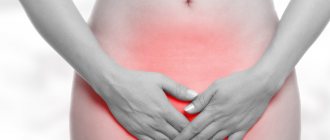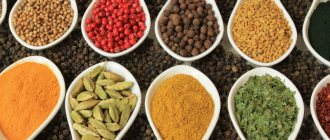04/17/2018 Olga Migunova 2 comments
Rumbling in the stomach seems quite harmless. However, if such symptoms are permanent, the problem becomes really significant and requires an immediate solution.
Key aspects of the problem
The digestive tract of the human body must constantly process enormous amounts of food. Considering the fact that modern people are increasingly abusing potentially harmful, heavy foods, it is not surprising that one or another organ is working intermittently.
Gas bubbles, gathered in huge conglomerates, can move noisily along the intestinal tract. Each organ has its own special anatomical structure. Each tissue consists of a number of specific cells and structures.
The glands of the gastrointestinal tract synthesize substances that promote food processing. Enzymes, juices, alkalis at different stages of the “journey” of a lump of food have a special effect on individual fragments of food.
In addition, saliva, bile, and insulin directly influence the breakdown of food. The pulp moves through the section through peristaltic movements. The bubbling is felt most strongly in the stomach and small intestine.
The greater the amount of juice and enzymes concentrated in the food channel at the time of food intake, the more gases will be produced during the breakdown of the food coma.
Gastroenterologists know about this feature of the human body, so they can simply explain why rumbling in the stomach occurs.
Causes:
- hunger;
- binge eating;
- failure in the nutritional pattern (lack of a normal breakfast or dinner);
- a combination of products that do not harmonize well with each other;
- a consequence of a strict diet;
- drinking a large amount of soda;
- abuse of wine, beer or kvass;
- pathologies of the gastrointestinal tract at the stage of active formation.
Every person has faced a similar problem. Factors that provoke rumbling include active smoking and drinking alcohol.
Eat as soon as you feel hungry
Rumbling can occur not only on an empty stomach, but also between meals. Regardless of whether food enters the digestive system, secretion of gastric juice and digestive enzymes occurs approximately every 2 hours, peristalsis of the intestines and stomach continues constantly, since the gastrointestinal tract is a hollow muscular organ subject to the control of the sympathetic and parasympathetic nervous systems, as well as air is swallowed in small portions. All this leads to bowel sounds in the intervals between breakfast, lunch and dinner, as well as during hunger.
If you feel that familiar feeling of hunger slowly but surely coming over you, try the easiest solution to the problem: start eating something right away. It's better if it's crackers or granola bars. But it’s better to avoid unhealthy foods high in fat: for example, potato chips often cause flatulence and digestive disorders.
A person's stomach growls when he wants to eat and this is the norm. There is nothing to worry about here. Sounds coming from the intestines in this situation indicate that the digestive system is working perfectly.
A healthy stomach functions like a clock: it secretes juice every 120 minutes. The process is independent of food intake. In the absence of food, smooth muscles contract and fluid mixes with air. Gases are formed, which rumbling through the gastrointestinal tract. The phenomenon is called flatulence. The sounds will go away on their own if you satisfy your hunger.
Why does my stomach growl so much?
All the reasons that provoke an unpleasant sound in the stomach and severe discomfort can be divided into three global categories. More details in the table.
| Main category | Causes |
| Physiological factors associated with the direct effect of food on the human body |
|
| The presence of pathological processes, abnormal gastrointestinal phenomena in acute or chronic form |
|
| Consequences of previous operations, gastrointestinal injuries, other specific factors |
|
People who are used to eating quickly, “eating on the go”, and not chewing their food normally will all the time suffer from strong rumbling in the stomach. Only by establishing a culture of nutrition can you count on the gastrointestinal tract to function as correctly as possible.
Irritable bowel
If your stomach is constantly rumbling very loudly, this is associated with irritable bowel syndrome:
- This phenomenon often appears in young women. According to experts, this occurs due to disruption of connections between the brain and intestines. This occurs when a person is exposed to chronic stress for a long time.
- The functioning of the intestines depends on the type of nervous system. If it is parasympathetic, then there will be increased intestinal motility, high hypersecretion of intestinal and gastric glands from stress and anxiety. They appear from excessive activity of the parasympathetic nervous system.
- The stomach is able to react to food that was eaten the day before. Some products have a choleretic effect. Bile is produced to process nutritional components. If the necessary food does not arrive, bile acts on the walls of the duodenum. This digestive juice is usually thrown back or leads to loose stools.
- There is a violation of intestinal motility. Food can stagnate or pass quickly. After passing the small intestine, it enters the large intestine in an incompletely digested form. Bacteria in the large intestine digest food. There is bloating of the intestines, rumbling begins.
- Discomfort arises from a violation of innervation - the connection between the gastrointestinal tract and the central nervous system. In people with this syndrome, spasms appear in the intestines, and characteristic sounds are observed in the abdomen. As gas and liquid move through the intestine, its size will remain the same, but narrowing will form in some places.
- Due to poor nutrition and stress, irritable bowel syndrome develops. You need to see a psychotherapist and gastroenterologist.
If your stomach is constantly rumbling very loudly, you need to contact a gastroenterologist to solve the physiological and social problem. The doctor will identify the reasons and prescribe treatment based on this. What to do if your stomach is constantly rumbling? An important task is to get rid of the causes of this discomfort:
- You need to adjust your diet. To restore disturbances in microflora and intestinal functions, the doctor prescribes medications with bifidobacteria. Associated ailments must be cured.
- To normalize gas formation, infusions of fennel, dill, and caraway are used.
- If there is flatulence, then the gas outlet tube will be an emergency aid. Activated carbon, Polyphepan, Enterosgel, which absorb gases that have accumulated in the intestines, help. Simethicone and Espumisan help with excessive gas formation.
If a child’s stomach is constantly rumbling, the doctor should also select treatment based on the causes of this discomfort. You should not prescribe medications yourself.
Rumbling stomach and diarrhea: an unpleasant combination
If not only is your stomach rumbling, but you also have diarrhea, this condition is especially difficult to endure. This “duet” of symptoms can occur due to inflammatory and infectious diseases (for example, salmonellosis or dysentery).
Seething is formed on the basis of total dysbacteriosis. Beneficial microorganisms suffer, and pathogenic agents multiply. As soon as the pathogen is eliminated and the microflora begins to recover, the intestines will work as usual.
The combination of mineral water and a large portion of fatty foods can cause not only severe rumbling in the stomach, but also severe discomfort, cramping pain and fat-like diarrhea. This is due to the fact that too many difficult-to-digest fats have entered the body.
Lipids do not have time to break down and are forced out of the body in the form of fatty diarrhea. At the same time, there are no pathogens in the body. However, we can safely talk about a mild degree of dysbacteriosis.
However, not only your favorite “fast food” can cause a specific physiological reaction. Vegetables and fruits expressed under greenhouse conditions are the first to reach the market. They contain a huge amount of substances that provoke the release of abnormally large amounts of intestinal gas.
What else is it associated with?
Why does my stomach constantly growl? This occurs from gases in the large intestine:
- This is the lower section of the gastrointestinal tract, which performs 2 functions. In this case, water is removed by suction. Remains of food are eliminated out in the form of feces, where bacteria are located. They perform digestion of leftover food, so gases appear at the end of the intestines.
- Methane, mercaptan, hydrogen, carbon dioxide and sulfur dioxide are present here. The first 2 compounds have an unpleasant odor because they have organoleptic and toxic properties. A large volume of gaseous substances can cause a toxic effect.
- These substances must be removed from the body, as this is an important physiological process. Often after overeating, excessive consumption of carbonated drinks, prunes, cabbage, apples, peas, alcohol, flatulence is observed - severe gas formation.
- It is necessary to limit heavy foods, which increase gas formation. If a person needs to communicate with people, it is advisable not to consume foods that lead to this problem.
These are common reasons why your stomach constantly growls. Nutrition is of great importance. You should be careful when choosing products.
If your stomach is constantly rumbling, what else could be the reason? Experts also associate this with hunger:
- The feeling of hunger occurs when there is a lack of nutritional components in the blood. A notification about this goes to a special part of the brain that regulates the activity of the gastrointestinal tract.
- The brain center of hunger activates the gastrointestinal tract, which causes the secretion of gastric juice. During this process, characteristic sounds are observed. You just need to eat to eliminate unpleasant sounds.
Strong rumbling and gas
When there is a lot of rumbling in the stomach, regardless of the cause, frequent gas may also occur. The problem is delicate, even intimate. Typically, this malaise occurs in people who eat according to the wrong diet, excluding breakfast. The situation is similar for those who with particular enthusiasm absorb a lot of fried, fatty, smoked foods, getting carried away with ketchup and mayonnaise.
If rumbling and excessive release of gases do not bother you very often, there is no problem as such. But if the attacks are quite frequent, over time the metabolism may be significantly disrupted. In this case, the imbalance must be eliminated with the help of a competent specialist.
Other reasons
If your stomach is constantly rumbling, what is the reason? This may be due to the process of gas formation in the small intestine:
- Often, various substances in gaseous form are swallowed with a bolus of food. But usually gases appear in an extended section of the gastrointestinal tract from the mixing and interaction of alkali and hydrochloric acid.
- This reaction causes the release of carbon dioxide. Some of the carbon dioxide remains in the vessels. The rest is mixed further and enters the large intestine. Gases noisily flow to the natural outlet.
- This occurs through the interaction of gases and liquid that is in the intestines. It is necessary to eat slowly, in small portions, and chew food well.
These are common reasons why the stomach constantly growls in adults and children. A doctor can accurately determine them and prescribe effective therapy.
Rumbling stomach in children
Problems with the digestive tract in children are common, even if they try to feed the baby according to all the rules. By itself, the child’s body is not yet a stable and integral system, so it cannot work without failures and disturbances. For newborns and infants, “colic” is one of the important stages of adaptation of the gastrointestinal tract to a new nutritional format.
It is impossible to completely eliminate rumbling in the stomach, no matter what the causes and no matter how carefully the treatment is selected.
However, this period of adaptation can be significantly facilitated for a baby if:
- breastfeed or bottle feed your baby according to all the rules and recommendations, preventing air from entering the digestive tract;
- eat according to a plan, excluding foods that potentially cause problems for the child;
- select infant formula and other food products with special care;
- perform a tummy massage;
- Constantly give dill water.
The baby should not be fed immediately after a crying attack or if the baby has been playing for a long time and actively before this. First he must calm down, tune in to eating and only then sit down at the table. It is important to follow these rules at all times.
Why does this happen?
Why does my stomach constantly growl? The reasons may be gases that appear after eating:
- People usually swallow air when chewing food. Oxygen and nitrogen are captured. These are the processes that are observed when food is poorly chewed and quickly swallowed.
- During the period of eating, more than 1 liter of air is swallowed per day. Therefore, various gases with a volume of 900 ml are constantly present in the stomach in the form of an air bubble. Often some gas is expelled by belching.
- In children, when sucking on their mother's breast or bottle of milk, this occurs due to swallowed air. Regurgitation and belching appear.
If your stomach is constantly rumbling and gases appear, then comprehensive treatment is necessary. The main thing is that it is aimed at eliminating the causes of discomfort.
Rumbling stomach and pregnancy
The period of bearing a child is often overshadowed by various dyspeptic disorders. Such disorders include periodic rumbling in the stomach. However, this is not a symptom of any disease. Most likely, the rumblings in the stomach indicate adaptation processes.
The intestines relax under the influence of progesterone. This is a normal reaction to changes in the hormonal composition of the blood. It is also worth considering the fact that with intensive growth of the fetus and the uterus itself, the intestines will slightly move away and be compressed. As a result, gases may accumulate and not be released in a timely manner. This is a temporary phenomenon and should not cause concern.
Don't forget to drink water
A glass of ordinary still water can be an excellent remedy to help get rid of a rumbling stomach, especially in situations where you have no opportunity to have anything to eat. Water stimulates the digestive process, facilitates its flow and also fills the gastric space. As a result, the rumbling in the stomach, if it does not go away completely, then at least quickly subsides.
It is best if you take care of solving your problem in advance and drink water in small portions throughout the day. But drinking a large amount of liquid in one sitting is not recommended: this will lead to gurgling sounds, which are no better than bowel noise.
Diagnostic measures
Only a competent doctor can tell why your stomach is rumbling. The problem can only be corrected if the cause is clearly established. This is not always junk food or, conversely, fasting. Each aggressive factor affects the body in its own way, which means that the influence must be properly eliminated.
Classic diagnostic measures:
- general blood analysis;
- general urine analysis;
- blood chemistry;
- Ultrasound of the abdominal organs;
- X-ray examination.
Dysbacteriosis, flatulence
When gurgling sounds come from the baby's tummy, parents should be concerned: babies have dysbiosis. The disease is caused by infections, certain medications, and unhealthy foods. It usually affects children who are bottle-fed.
Interesting!
If your stomach is constantly rumbling, then you need to consult a gastroenterologist.
Symptoms of intestinal dysfunction in infants:
- Feces with mucus;
- White or yellow lumps in feces;
- Painful colic;
- Refusal to eat;
- Crying while taking formula or milk;
- Frequent regurgitation after feeding.
Diseases are treated with drugs containing beneficial bacteria. These medications include Lacidophil. Bobotik and Bebinos are used as pain relievers. Sometimes doctors recommend switching to a mixture rich in prebiotics.
These ailments also lead to constant gurgling and rumbling in the stomach:
- With these diseases, the balance of the intestinal microflora occurs. The ratio of pathogenic and beneficial microorganisms changes.
- Due to the active proliferation of harmful microbes, severe gas formation occurs in the intestines and stomach. Pain, rumbling, and bloating occur.
Treatment: Key Aspects
To eliminate the grumbling, you need to accurately determine the cause. “Hungry” seething is easy to eliminate – just eat lightly. In other cases, detailed diagnostics may be required. Once the diagnosis is made, the doctor will develop an individual treatment regimen.
Flatulence
For increased gas formation, it is recommended to take the following medications:
- Motilium;
- Espumisan;
- Smecta;
- dill decoction.
Vomit
If, in addition to rumbling, there is nausea and severe vomiting, then you should use the following set of medications:
- Activated carbon;
- Linux;
- Cerucal;
- Festal.
Diarrhea
To stabilize stool, you need to use the following pharmacological products:
- probiotics;
- prebiotics.
Pre-use activated carbon or Smecta to completely eliminate all toxins from the intestinal environment.
Before your period
Before the menstrual cycle, women's bodies experience changes in hormonal balance. Due to the increase in hormones, the functioning of the digestive organs decreases, so their functioning is disrupted. With these changes, bloating appears in the abdomen, intestinal upset and seething are observed.
Symptoms usually go away on their own within a few days. But for some they persist throughout menstruation. The occurrence of rumbling should not be a concern, since this is a normal physiological process. Usually, medications are not used for these symptoms. Sometimes it is necessary to reduce the consumption of certain foods that cause increased gas formation.
Proper nutrition
In order to prevent intestinal problems in general, as well as to prevent exacerbation of chronic gastrointestinal diseases in the future, it is important to develop the correct nutritional system. High-quality products, a thoughtful diet, a balanced and thoughtful diet plan are the basis for prevention and treatment.
The main objectives of the diet are as follows.
- Provide adequate nutrition.
- Normalize intestinal motility.
- Eliminate, if possible, the processes of inflammation, fermentation and rotting.
- Completely avoid products that are contraindicated for a particular person.
- Restore normal intestinal microflora.
Principles of nutrition
Every meal should take place in a calm environment. Snacking on the run is a taboo. They chew food carefully, slowly, without talking. It is not advisable to drink water when eating directly.
The rhythm of food intake plays an important role. It is important to configure your body so that food will enter the gastrointestinal tract at certain intervals. Thus, over time, the stomach, pancreas and bile elements will produce all biological fluids at the right time, ensuring the normal processing of food coma.
The table below provides an approximate list of permitted and potentially harmful foods.
| Prohibited Products | Authorized Products |
|
|
Limit your intake of gas-inducing foods
Certain foods that we often find in certain dishes cause flatulence and indigestion. If the sounds caused by the movement of gases through your intestines do not seem to be the best companions in life, you will have to give up such food or at least reduce its consumption to a minimum.
What foods stimulate gas formation? These are, first of all, different types of cabbage (white cabbage, cauliflower, Brussels sprouts, broccoli), legumes (beans, lentils, peas), mushrooms, onions, carbonated drinks, whole grains and beer. Try eliminating one of these foods from your diet one at a time to determine which one is causing excess gas and bowel sounds.
Highly acidic foods and drinks contribute to bowel sounds, so reducing the amount of them in your diet will prevent unpleasant sounds. First of all, we are talking about citrus fruits, tomatoes, mineral soda, and coffee. Try drinking tea with a high caffeine content for breakfast - it will probably help your cause.
The main causes of flatulence are:
- Diet violation. Fast food, fatty foods, dry food, highly carbonated drinks, alcohol.
- Dietary disorder. Exclusion of breakfast, lunch or eating conditions, for example, aerophagia - swallowing air when talking while eating, eating in a hurry.
- Poor chewing. If the grinding is poor, large particles of food in the intestines activate pyogenic microflora and lead to increased gas formation and the production of toxins, which can subsequently lead to diarrhea.
- Lactose deficiency.
Another reason for gas formation and rumbling may be pregnancy, especially in the first trimester, as well as a tendency to constipation.
Diagnostics
If there is discomfort, constant rumbling in the stomach, then it is necessary to undergo diagnostics:
- Neurological tests are performed to determine the type of nervous system.
- For differential diagnosis, capsule endoscopy is performed. This is a painless process. A special capsule with a camera is swallowed with water - it will remain in the body for about 8 hours. Thanks to this device, approximately 50 thousand pictures are taken. Then the sensor is removed from the body. The computer decrypts the images. The doctor can assess the condition of the gastrointestinal tract from the mouth to the anus.
If your stomach is constantly rumbling very loudly, the doctor will prescribe treatment after diagnosis. It is important to follow the recommendations of a specialist, because only with them will the condition be normalized.
Having understood the question of why your stomach is constantly rumbling, verbally, you need to move on to practice. So, doctors conduct a comprehensive examination using the following methods:
- Palpation is a standard manual examination, during which the doctor feels the abdomen with his hands, determining where the pathology develops. The presented technique cannot give a final verdict on why the stomach rumbles and gurgles, since complex instrumental diagnostics and laboratory tests are required.
- Conducting laboratory tests is the next method to determine the reason why the intestines and stomach in general are rumbling. In this case, it is expected to donate feces, possibly urine, and it is necessary to conduct blood tests - general and biochemical. Laboratory tests may indicate possible inflammation or the development of a bacteriological or infectious disease.
- Computed tomography of the abdominal cavity - if there is noisy rumbling in the abdomen, instrumental examination is the main method to determine the cause. This method helps to detect serious pathology, its location and other characteristics.
- Abdominal x-ray - a regular x-ray makes it possible to understand whether there are gases, fluid, stones and other components in the organs that can lead to rumbling and bloating.
- Fibrogastroduodenoscopy is a standard and familiar FGS, which helps determine why bloating and rumbling occurs in the abdomen by conducting an internal examination of the esophagus and stomach.
- Colonoscopy - the method is an internal examination of the intestinal walls, including the collection of biomaterial for laboratory tests.
- A coprogram is a non-standard stool analysis that makes it possible to diagnose inflammation and the development of infectious pathologies.
Based on the results obtained, the doctor will determine what to do in the presented situation. In most cases, the stomach constantly growls and growls due to poor nutrition.
To confirm the diagnosis, it is recommended to consult a doctor and undergo a comprehensive examination. An oral survey is carried out and additionally prescribed:
- colonoscopy
- FGD
- coprogram
- ultrasound examination
Depending on the results obtained, the doctor selects the appropriate treatment.
Folk remedies
When the stomach constantly growls and gurgles, traditional medicine is used. To do this, it is recommended to use different decoctions and infusions of beneficial herbs:
- Chamomile officinalis. For increased gas formation, it is recommended to drink chamomile tea. To prepare it, you will need 1 tsp. flowers of the plant, which is poured with boiling water (1 cup). Infusion is carried out for 30 minutes. You should drink tea half an hour before meals once a day. The drink normalizes the state of intestinal microflora.
- Herbal collection. It includes St. John's wort, dried plantain, sage - you need to take 2 tbsp. l. Add oak bark to them - 1 tbsp. l., and then pour in all 0.5 liters of boiling water. You need to leave for about an hour, strain and take ½ glass an hour after meals.
- Another herbal tea. To prepare it, you will need buckthorn bark, nettle leaves and peppermint (3:3:2). Take 1 part each of the roots of calamus and valerian. Boil 0.5 liters of boiling water in a saucepan, and then add 2.5 tbsp. l. mixtures. You need to boil for 5 minutes and leave for 3-4 hours to infuse. The product is taken 30 minutes before meals, ½ cup. A fresh portion of the medicinal infusion should be prepared daily.
If your stomach is constantly rumbling very loudly, treatment should be carried out comprehensively. Doctors first of all advise restoring nutrition and taking medications.
Unlike traditional medicine, folk medicine is more based on natural assistance to the body in combating unpleasant sounds and eliminating discomfort. Folk remedies help cure a person’s disease and make his life more comfortable.
Herbal collection
Collect herbs: St. John's wort, sage and plantain. Place in a container, add oak bark and fill with hot water (0.5 liters). Take a glass three times a day after meals. Black and green teas also have a beneficial effect on human well-being. Crushed ginger root, taken in the morning, 1 teaspoon, will help stop the pain and remove the unpleasant sound.
Kefir, yogurt
Lactic acid bacteria contained in kefir and yogurt help the intestines cope with food digestion and reduce gas formation. The products help the body get rid of pathogenic bacteria. After drinking kefir, people complain of increased bloating. This is due to lactose intolerance.
Physiotherapy
If your stomach is constantly rumbling loudly, special exercises can help eliminate the problem:
- Strengthening the anterior abdominal wall is required to improve the health of the intestines. Thanks to good abdominal muscles and active movements, normal abdominal pressure is ensured. This has a positive effect on the motility of the final sections of the gastrointestinal tract.
- One palm is placed on the upper half of the abdomen, the other on the lower half, which will be motionless. When controlling the anterior abdominal wall with your palm, you should pull it up. Then you need to exhale.
- Thanks to the rotation of the pelvis, the abdominal wall is strengthened.
- You need to sit down with your knees spread apart. You need to stay in this position for 3-5 minutes.
- In a lying position on the floor, the feet are brought together, pressing them to the floor. The palms on the stomach should be pressed together and pointed down. Press on the abdominal wall with folded palms for 5-10 minutes. This improves intestinal activity.
Effective drugs
Rumbling appears from poor eating habits and an unhealthy lifestyle. There are several remedies to get rid of this discomfort:
- Beneficial bacteria. First, the cause of the rumbling is identified. If there is constipation or diarrhea, flatulence, then this is probably due to dysbiosis. Probiotics help eliminate it. There are many drugs in pharmacies that include beneficial bacteria. These are “Linex”, “Hilak Forte”, “Lactobacterin”, “Bifiform”, “Acipol”.
- Enzymes. These funds are required in case of overeating and poisoning, when the pancreas temporarily does not produce the enzymes that are necessary for the absorption of food. “Mezim”, “Pancreatin”, “Festal” are used.
- Anti-flatulence medications. These are symptomatic remedies that eliminate gas bubbles in the intestines. Espumisan helps.
- Antispasmodics. If colic or acute pain occurs when rumbling, these remedies are needed. These are “No-shpa”, “Spazmol”, “Biospa”.
- Sorbents. These medications absorb toxins, waste products, alcohol breakdown products, and pathogenic bacteria during poisoning. These include activated carbon, Polysorb, Filtrum, Smecta.
Recommendations
If the rumbling appears suddenly, the following tips will help:
- Before an important event, you should eat a banana or an apple.
- You should have medications with you to reduce gas formation.
- Drink a glass of still water.
- Drink mint tea.
- If discomfort arises from stress, you should take deep breaths and concentrate on a specific subject.
- You should not chew chewing gum, as this leads to excess gastric juice.
- You should not drink carbonated drinks.
- It is important to quit smoking, because with such a habit a person swallows excess air.
- You need to loosen the belt that is squeezing the digestive organs.
Rumbling in the stomach is considered natural if it does not exceed the norm. If a symptom appears at the wrong time, you should not focus on this, because worries only aggravate the problem.
Symptoms of the disease
In addition to the banal causes of malnutrition or drinking large amounts of carbonated drinks, rumbling indicates the development of serious diseases. Dysbacteriosis, gastritis, intoxication - this is not a complete list of possible diseases.
Rumbling in the lower abdomen
The source of noise located in the lower abdomen is a signal of intestinal disorder. The sound is accompanied by pain, bloating, nausea and vomiting, indicating the development of dysbacteriosis. Often the same symptoms can belong to different diseases. A single symptom does not make it possible to determine the true source of the disease.
The disease gastritis is accompanied by noise in the lower abdominal cavity and pain. There are cases that occur without obvious signs, exclusively at an early stage.
Rumbling that goes away on its own does not mean a threat. But rumbling that is repeated over a long period of time, especially if pain is present, requires serious evaluation and mandatory consultation with a doctor.
Rumbling on the left side
Noise in the left side of the abdomen indicates increased peristalsis of the colon or stomach. Food that is formed into a lump moves too quickly through the digestive tract. The chemical treatment of this lump to release digestive enzymes is delayed. This means that digestion of food becomes difficult. The process that occurs is called intestinal hyperactivity. Similar symptoms under the left rib appear in a patient with infectious gastroenteritis.
Abuse of alcoholic beverages, ingestion of toxins and poisonous substances into the body are the reasons that cause rumbling on the left side of the abdomen, when it still radiates under the ribs.
Stress is an important cause of left abdominal noise. Diarrhea and allergies to certain substances contained in foods are the cause of discomfort and sounds in the abdominal area.
Rumbling on the right side
Discomfort on the right side, extending to the hypochondrium, appears less frequently than the previous symptoms, but is no less serious. Rumbling and sour belching indicate diseases of the liver, gall bladder and pancreas - pancreatitis and cholecystitis.
The pathology of the inflamed gallbladder is manifested by pain under the right rib. Noise, upset and pain in the right side of the abdomen indicate poisoning of the body. Measures to eliminate the infection by gastric lavage should be carried out without delay.
Rumbling on the right may simply indicate hunger, but it is advisable to visit a medical facility and find out the true cause of the noise in the stomach.
Try to avoid stress
It is not uncommon for bowel sounds to occur during certain stressful situations such as interviews, presentations and exams. This is due to the fact that bowel activity increases during periods of anxiety, regardless of whether you have had time to eat something or not.
Stress slows down digestion and triggers symptoms associated with indigestion, including heartburn and stomach sounds. Meditation will help reduce anxiety and ease the perception of stressful situations, including breathing techniques that have a beneficial effect on the central nervous system.
Prevention
To prevent stomach turmoil, it is necessary to identify and eliminate food intolerances, work out psychological aspects, and direct efforts to restore the natural intestinal microflora. To do this, the diet is reviewed, enzyme preparations and metabiotics are used, if necessary.
It is necessary to promptly treat emerging disorders of the gastrointestinal tract and the entire body as a whole, and seek qualified help at the first sign. A rumbling stomach is not just an unpleasant symptom that can cause discomfort. This may be an indication of serious disturbances in the functioning of the gastrointestinal tract, poisoning, enzyme deficiency, helminthiasis. At the first manifestations, it is recommended to refrain from self-medication and consult a doctor.
If your stomach is constantly rumbling, then it definitely needs to be treated. And after this, it is necessary to engage in prevention so that the problem does not appear in the future. The main means of prevention is considered to be ordinary clean still water. Thanks to its proper use, digestion processes are stimulated.
For the normal functioning of the digestive system, you need to drink 2 liters of water per day. But it is better not to do this when eating. Drink water between main meals:
- If water is consumed 30 minutes before meals, then a normal level of digestive juice appears in the stomach to process food.
- When a glass of water is drunk 1.5-2 hours after this, the body will remove many toxins and wastes that appear during digestion and pollute the body.
- If water is drunk during a meal, the production of digestive juice in the stomach is disrupted, and the concentration of secreted juice will be less than normal, since water dilutes it. In this situation, digestion is disrupted, and diluted gastric juice is not able to process foods properly.
To prevent stomach rumbling, it is recommended to exercise and lead an active lifestyle. All people need to get into the habit of exercising at least 2 times a day for 30 minutes. Compliance with these rules of prevention has a positive effect on a person’s well-being.











